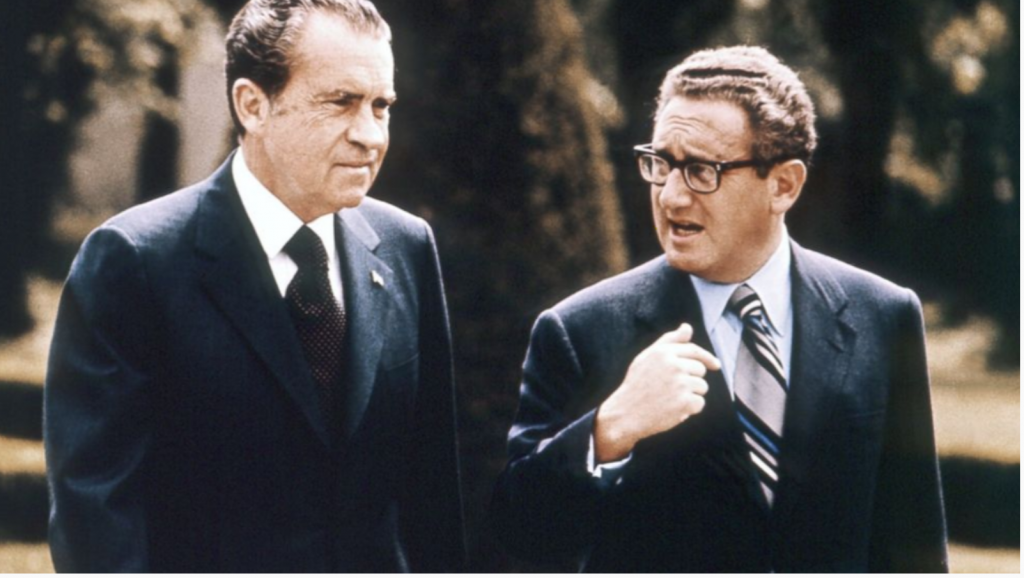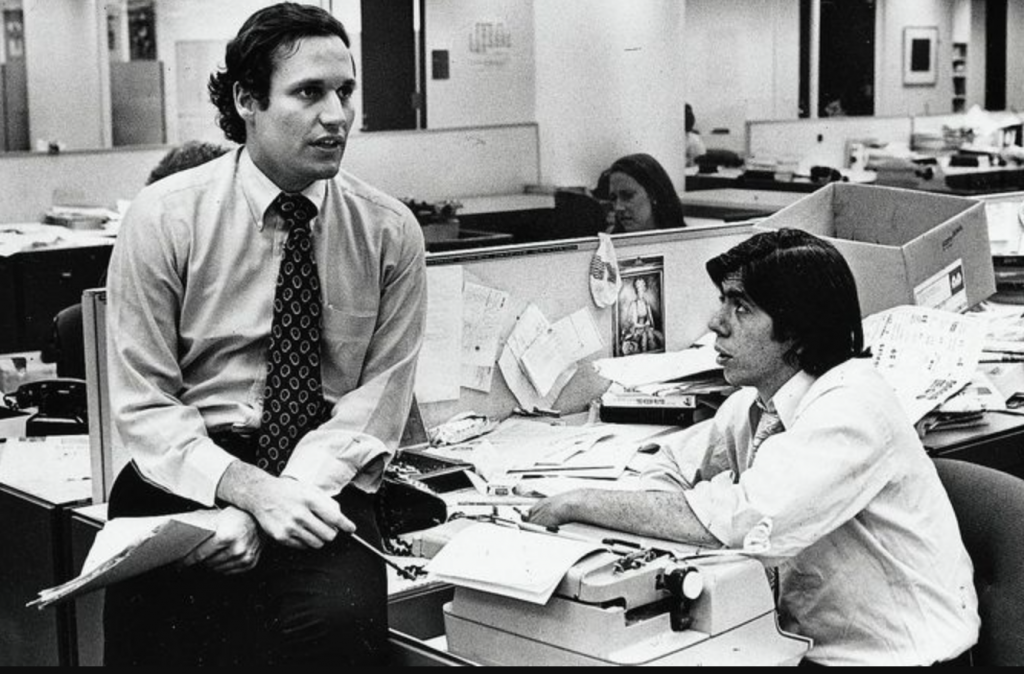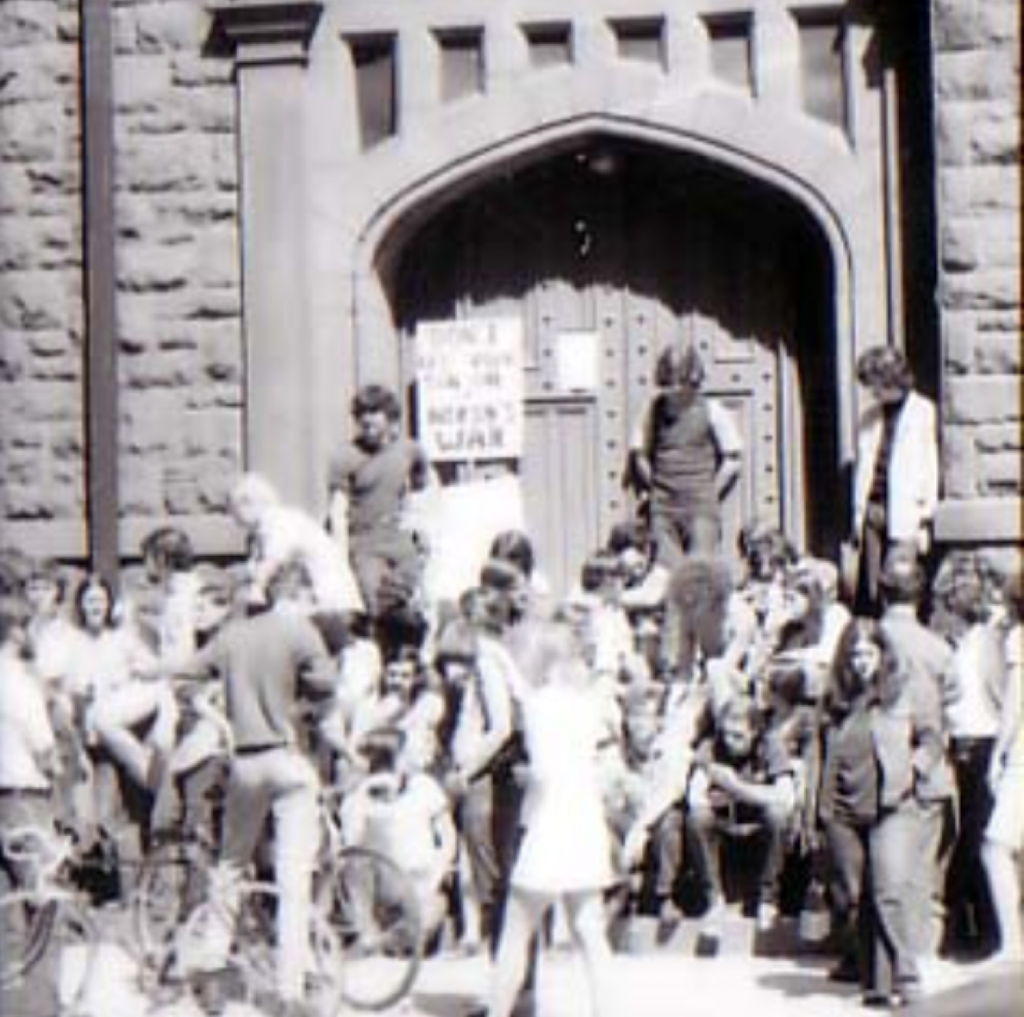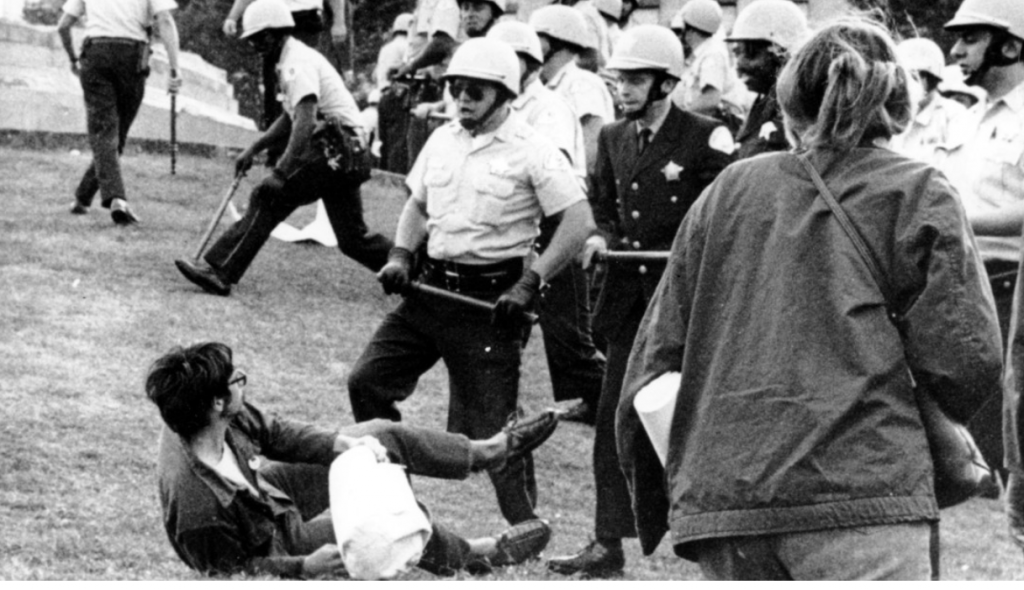Did Richard Nixon’s achievements outweigh his failures?
Brands, Chapter 7: The Triumph of Cynicism, 1968-74
- The Cruelest Season (pp. 159-62)
- The Rise of Richard Nixon (pp. 162-66)
- The Highest Ground (pp. 166-68)
- Means and Ends (pp. 168-71)
- From Beijing to Moscow (pp. 171-3)
- … To Paris (pp. 174-5)
- Now or Never (pp. 175-80)
- It’s Not the Crime, It’s the Cover-Up (pp. 180-86)
Gender Politics and Resistance in the 1970s
But despite the movement having spread across the country throughout the 60s and 70s, there were still many demographics of women that were being left behind by this second wave of feminism, including lesbians. —Sarah Cayouette-Gluckman, oral history project
Timeline
- 1960 // Birth control pill invented
- 1963 // Betty Friedan publishes The Feminine Mystique
- 1966 // National Organization for Women (NOW) forms
- 1971 // Congress send Equal Rights Amendment (ERA) to states
- 1972 // Gloria Steinem launches Ms. magazine
- 1973 // Roe v. Wade decision legalizes first trimester abortions
Discussion Question
- How did Betty Friedan’s work and the rise of the National Organization for Women (NOW) represent both a continuation and a departure from previous eras of American feminism?
Image Gateway
Featured Video
End of Vietnam Conflict
- 1970 // Invasion of Cambodia and Kent State protests
- 1971 // Pentagon Papers & trial of Lt. William Calley (My Lai)
- 1972 // China opening, Easter offensive, Detente (SALT / ABM)
- 1973 // Paris peace accords (Vietnam agreement)
- 1975 // Fall of Saigon
End of Vietnam War
Understanding My Lai (From Maria Villotti’s website):
 On March 16, 1968, American soldiers entered the Vietnamese hamlet known as My Lai expecting to enter into a fire fight with members of the Viet Cong’s 48th Local Force Battalion. However, they found no Viet Cong and instead killed and sometimes raped somewhere between 300 and 500 Vietnamese civilians. The story would remain largely unknown until one soldier began to speak out a year later in 1969…As a result of his trial, Lieutenant William Calley was found guilty on March 29, 1971, of murdering at least 22 Vietnamese civilians (down from the original charge of 109) three years earlier at My Lai.
On March 16, 1968, American soldiers entered the Vietnamese hamlet known as My Lai expecting to enter into a fire fight with members of the Viet Cong’s 48th Local Force Battalion. However, they found no Viet Cong and instead killed and sometimes raped somewhere between 300 and 500 Vietnamese civilians. The story would remain largely unknown until one soldier began to speak out a year later in 1969…As a result of his trial, Lieutenant William Calley was found guilty on March 29, 1971, of murdering at least 22 Vietnamese civilians (down from the original charge of 109) three years earlier at My Lai.
Discussion Question
- Why were Dickinson students protesting US foreign policy outside of Denny Hall in May 1970?
Violence in the late 1960s
April 1968
Here is a video of Kennedy’s speech in Indianapolis on April 4, 1968, where he revealed the sad news of Martin Luther King’s killing to a stunned crowd. Kennedy himself was murdered at the beginning of June.
August 1968
Politics of the 1ate 1960s
Richard Nixon (Rep), “Crime” (1968)
The Nixon campaign was not the only one playing to the fears and resentments of American voters in 1968. Independent candidate and Alabama governor George Wallace offered his own version of right-wing populism (“law and order”) to help stoke support.
George Wallace, (Ind) “Law and Order” (1968)








